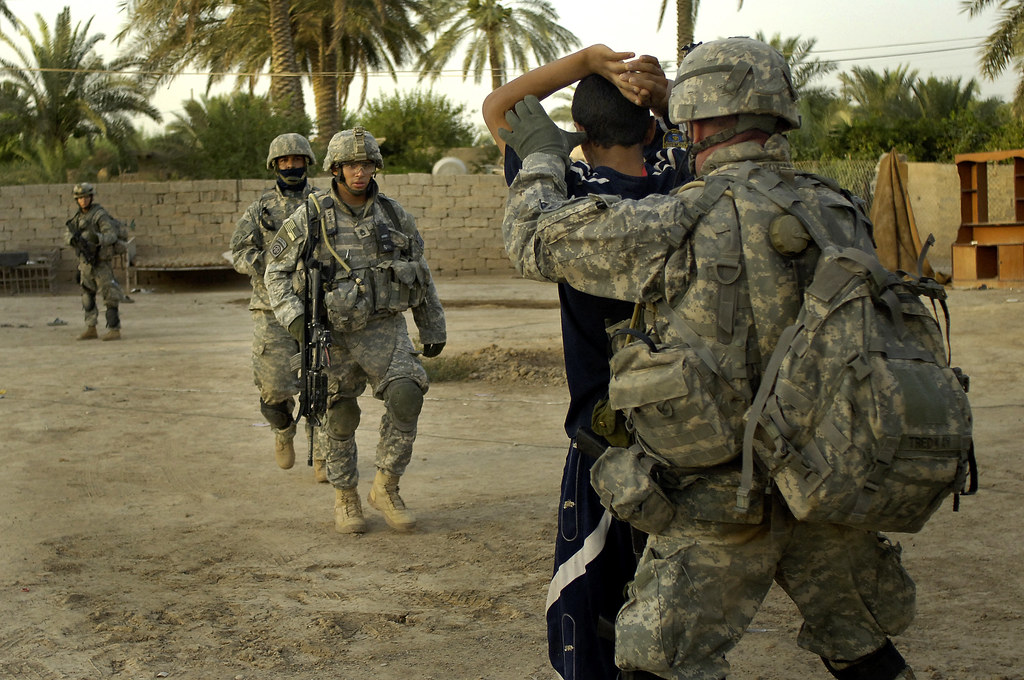Military training abroad is one of the main foreign policy tools deployed by a growing number of countries, including Canada. In recent years, a number of officers trained within these programs have been implicated in coups d’état, raising concerns about the role that overseas training may play in these events. These concerns are most often expressed in the context of US military training. However, analysis of the training offered by the United States to foreign countries suggests that such a link to coups is far from clear.
Highlights
- It is far from certain that US military training generally increases the likelihood of a coup. It is reasonable to assume that Canadian training is even less likely to have adverse effects, given the size of Canadian programs compared to those in the United States.
- Given the multilateral context in which Canada offers this type of training and the modest size of its investments in this area, policymakers should recognize the limits of the ability of Canadian trainers to reshape foreign armies.
- Local political conditions play a central role in triggering coups d’état, and foreign military trainers have limited impacts in the context of often unstable political systems.
- Rather than suspending aid to partner nations, the Canadian military should focus its efforts on areas of expertise, including the inculcation of democratic norms and standards of military professionalism.
Context
On August 18, 2020, a group of military officers overthrew the Malian government in a coup. In the aftermath, questions quickly arose concerning the fact that several of the officers involved participated in military training programs led by foreign countries, including the United States. In fact, Mali’s August 18 coup marked the second time in eight years that US military-trained officers ousted the Malian government.
Not surprisingly, the events in Mali renewed doubts about potential links between US military training and coups d’état. Some observers have also raised questions about the impact of Canadian training, fueling debates about the need to withhold aid to foreign armies. Does military training abroad provoke coups? The data available do not allow us, for the moment, to offer a definitive answer. So, until we know more, a certain skepticism is in order.
The Impact of Military Training on Coups d’Etat: An Uncertain Link
From Mali (2012, 2020) to Thailand (2014), to Egypt (2013) and Zimbabwe (2017), many states have been affected by coups in recent years. Concurrently, there has been a wave of academic research on the origins and consequences of these events.
One factor drawing the attention of researchers has been the military training offered by foreign countries to local armies. This interest stems in part from the fact that this type of training has become, in recent years, one of the main tools of foreign and security policy used by Western countries. From the US military training Iraqi, Afghan, or Ukrainian forces to the training programs of the French State’s Directorate of Security and Defense Cooperation (DSDC) (e.g. as part of Operation Barkhane in the Sahel), many states are investing in “human capital” abroad, perceiving the transfer of expertise and standards as less risky and controversial than direct military interventions.
Such training – which can cover subjects as varied as counterterrorism, counternarcotics, cybersecurity, border control, or the rule of law – allows training states to promote their strategic and security interests while advancing their soft power. Training is often also be part of the international security strategy of the great powers, who use training to create, consolidate, or extend spheres of influence on the world stage in response to the actions of rivals. Beneficiary countries can also obtain significant diplomatic and military benefits from participating in training. Recipient governments use foreign training to signal their commitment to the cooperative diplomatic relations with providers, in addition to acquiring military expertise to enable them to face security threats.
Some research suggests that military training abroad can generate a number of positive outcomes, such as the development of democratic institutions, greater respect for human rights, or reducing political violence in recipient countries. However, recent events raise concerns about whether foreign training itself provides the sorts of resources, techniques, and prestige that entice officers to overthrow civilian government in fragile states.
Some research – widely reported by the media in the coverage of Mali’s coup – suggests that there is indeed a link between military training offered by foreign countries and the incidence of coups d’état by trained armies. Our colleagues Jesse Dillon Savage and Jonathan Caverley, for example, have found that countries receiving US military training through the International Military Education & Training (IMET) program have a coup risk twice as high as countries who do not receive this training. They plausibly suggest that such training lends credibility and power to trained officers, resources these officers can then mobilize to rally their colleagues against fragile civilian governments.
What commentators too infrequently note, however, is that this analysis relates primarily to a single US training program. However, the United States offers more than 34 military training programs to its foreign partners, in almost every country in the world. The program Savage and Caverley link to the impact of coups d’état – IMET – is a cornerstone of these efforts, but accounts for only 14% of US spending in foreign military training and 11% of trained personnel.
When we run a similar analysis examining all of the US programs, there is no apparent relationship between military training and coups, even when looking at programs very similar to IMET. A similar study, carried out by researchers at the RAND Corporation, analyzes the links between US military training and the incidence of coups in Africa and also raises doubts about this correlation. Indeed, recent research shows that, on average, US military training in Africa has reduced the interference of national armies in the political sphere and their participation in human rights abuses.
A Widespread Phenomenon
There are other reasons to be skeptical of the training-causes-coups hypothesis. First, it is not particularly surprising that the instigators of the coup in Mali were involved in American programs. Between 1999 and 2016, these programs saw 2.4 million participants and cost more than $20 billion. Indeed, in a multitude of countries, a significant number of officers take part each year in the equivalent of international training pilgrimages, laying the foundations for a transnational circuit of academies, exercises and maneuvers. For these officers, participating in such training is often critical to building a successful career. Thus, even if certain high-profile examples seem to indicate the presence of a link between American military training and the incidence of coups in recipient countries, the apparent relationship might simply reflect the ubiquity of these programs within most armies.
Another consideration concerns what researchers term “selection effects,” namely the fact that training is not provided on a random basis. Indeed, much training is deployed in order to improve civilian control of the military in coup-prone countries such as Mali, where coups tend to breed coups. Hence, it is possible that a training-coup relationship simply reflects the presence of training programs in countries that, for their own internal reasons, are highly vulnerable to coups.
Limited Impact
Another reason for skepticism is that the impact of this military training may be minimal. On the one hand, massive training programs in Somalia, Iraq and Afghanistan have resulted in more failures and frustration than tangible successes. In this regard, Jahara Matisek has compared the armed forces formed by foreign countries to Fabergé eggs, “expensive and easily broken.” On the other hand, several training activities are limited to a handful of soldiers and last only a few days. Thus, it is difficult to conclude that foreign military training alone generates significant changes in the relationship between civilian governments and the military in recipient countries.
While we cannot draw a general conclusion about the training-coup link, perhaps it is possible to identify a correlation in some specific situations – for example, depending on the type of training given or how training interacts with local political conditions.
The Place of Democratic and Professional Standards
Some commentators suggest that the training focuses too much on technical and tactical expertise, to the detriment of inculcating democratic norms and standards of military professionalism. However, to the extent that improving civilian control over the military is one of the main objectives of these programs, these norms and standards tend to occupy a prominent place in training curricula. The problem appears to be related to the difficulty of “transplanting” these standards, as the United States and the European Union are now learning after years of effort and tens of millions of dollars trying to reform the security sector in Mali.
It should also be noted that norms of military professionalism are ambiguous and conducive to abuse. As our colleague Risa Brooks suggests, the presence of such standards in the United States does not prevent American military personnel from entering the political arena. Worryingly, Sharan Grewal finds that the growing politicization of American officers is increasingly rubbing off on trained foreign officers.
All of this does not mean that we should not evaluate training programs critically. Injecting significant resources into the armed forces of fragile states is a risky business, which can potentially lead to unwanted consequences. In seeking effective security partners, the United States and its allies have increasingly focused on elite units, such as those led by Colonel Goïta, the head of the new Malian junta. While such intensive and long-term training can help impart important skills, it can also encourage the rise of praetorian guards that threaten democratically elected civilian governments.
Considerations and Recommendations for Canada
Military training abroad is also an important part of the range of foreign policy tools deployed by Canada. Strengthening an army’s capabilities in partner countries is indeed one of the main missions of the Canadian Armed Forces (CAF) within the framework of the defense policy Strong, Secure, Engaged, currently in force. The transfer of expertise and the development of capabilities allow local armies to acquire resources in order to respond more effectively to the security challenges they face, but also help to improve interoperability and strengthen relations between the CAF and its partners. As a result, questions surrounding the links between foreign military formations and coups d’état also arise for Canadian policymakers.
However, it should be noted that unlike the United States, which frequently operates large-scale training programs unilaterally, the training operations carried out by the CAF abroad are much more modest and occur in the context of multilateral operations, that is to say in partnership with the armies of allied countries. Thus, if the link between American military training and coups d’état remains mixed, it seems that the impact of Canadian training will be more so, underlining the importance of maintaining realistic expectations regarding the CAF’s ability to reshape the standards and practices of foreign armies.
Based on what the American experience teaches us, it appears possible that training that places more emphasis on inculcating democratic and liberal norms and standards of military professionalism and governance can help. When we consider the main training missions given by Canada between 1999 and 2019, we notice that emphasis on the transmission of these norms and standards varies. While it occupies an important place in the curriculum of certain Canadian programs (e.g. in the context of Operation Crocodile in the Democratic Republic of the Congo), the objectives that most often figure at the heart of these Canadian training are linked to improving military performance and the fight against terrorism. While the CAF on its own cannot hope to produce major changes in the trajectory of foreign armies, its impact could be greater from a civil-military perspective if, within the multilateral operations and coalitions of which they are a part, they placed more direct emphasis on aspects of military professionalism.
Nonetheless, the fact remains that the outbreak of coups d’état is influenced more by factors internal to a country than by the efforts of outsiders underlines the often limited impact of training activities. It is tempting to believe that military problems have technical solutions. However, here, the stakes seem above all political. They are often the product of unstable political systems, torn apart by persistent competition between political factions, and unable to respond to the grievances of a society, including those of the military officers who form part of it. Under these conditions, international military training programs, even those focused on the transmission of norms and standards, can only have a small impact.
In short, even if the impact of military training on coups d’état in recipient countries remains limited and difficult to determine, Canada should maintain this foreign policy tool, but rethink it in light of what history teaches us, while recognizing its limitations.







Comments are closed.